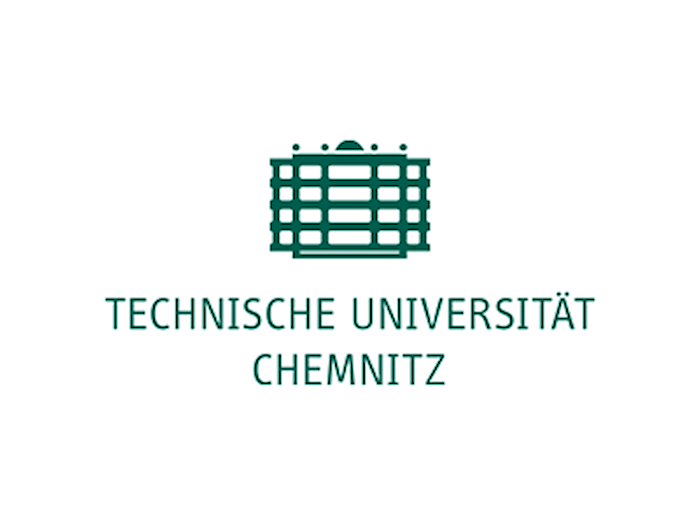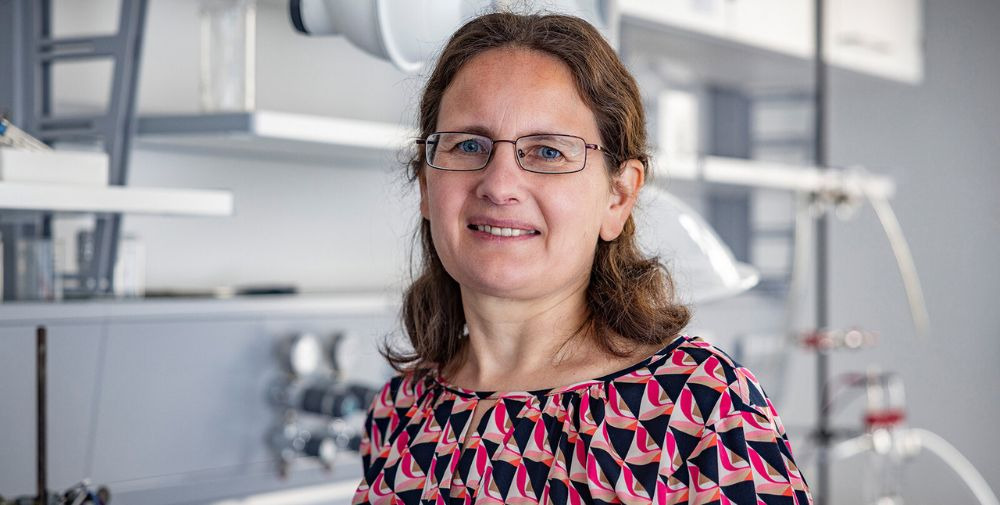
Prof. Dr. Karin Leistner, holder of the Chair of Electrochemical Sensing and Energy Storage at the Institute of Chemistry at Chemnitz University of Technology (TUC), has been successful in the current award round for the prestigious “ERC Consolidator Grants” of the European Research Council (ERC). The electrochemist will receive around two million euros over the next five years for her research project “ACTIONS: Engineering Magneto-Ionic Materials for Energy-Efficient Actuation and Sensing”. With this outstanding success, Leistner is one of only 308 out of 2,130 applications approved for funding, 66 of which are from Germany. With the approval, the first “ERC Consolidator Grant” and thus one of the most prestigious EU grants for excellent top-level research was acquired at the TUC. Through her research work in the field of magneto-ionic materials as a promising new class of materials in magnetoelectrics, Leistner aims to develop important basic principles and innovative solutions for tiny magnetic components that could revolutionize areas of medical technology, microscopy and microrobotics.
“After succeeding in bringing the first ERC Starting Grant to Chemnitz University of Technology around two years ago, we are now delighted to receive the first ERC Consolidator Grant. I warmly congratulate Ms. Leistner on this outstanding success in an extremely competitive and prestigious competition at European level, which makes the international research excellence of our university highly visible,” said the Rector of Chemnitz University of Technology, Prof. Dr. Gerd Strohmeier.
Magneto-ionic materials as a pioneering path to energy-efficient magnetic micro- and nanosystems
Today, 200 years after the discovery of electromagnetism by the Danish scientist Hans Christian Oersted, magnetic systems are indispensable in many large-scale technical applications, such as in electric motors. So far, however, it has been difficult to exploit this potential on a small scale. The reason for this is that electromagnets on a micrometer scale require very high electrical currents in order to generate switchable magnetic fields for reliable functionality. This results in problems due to heat generation and low energy efficiency. “The ACTIONS project in Chemnitz is now proposing a groundbreaking new approach to energy-efficient magnetic micro- and nanosystems based on magneto-ionic materials. In magneto-ionics, the properties of magnetic materials are controlled in a targeted and very energy-efficient manner by electrochemical reactions at room temperature and low voltage. However, the underlying electrochemical and magnetic processes are often not yet understood. Further basic research at the interface between magnetism and electrochemistry is urgently needed. We use special methods such as magneto-optical core microscopy in an electrochemical environment to achieve a better understanding,” explains Leistner.
Switchable magneto-ionic magnetic field sources could replace conventional microelectromagnets in the future
“Researching electrochemically switchable magnets on the nanometer and micrometer scale has long been a major concern of mine. I am delighted that I can now realize this project with the ERC Consolidator Grant at the TUC. I am convinced that magneto-ionic micromagnets will open up completely new possibilities for the energy-efficient miniaturization of magnetic systems. Many areas, such as microfluidics, electron optics and microrobotics, can benefit from this,” says Leistner. In her project, the chemistry professor wants to further develop magneto-ionic materials for magnetic actuators and sensors. To this end, Leistner will switch from thin films to magneto-ionic 3D nano- and microstructures with targeted alignment of the magnetization for the first time. “These structures are expected to generate magnetic fields and gradient fields that can be switched with a low electrical voltage,” says Leistner. The result could be switchable magneto-ionic magnetic field sources that could replace conventional microelectromagnets in the future.
Leistner is a leading international expert in the field of magneto-ionics and has been very active in shaping this field from the very beginning. In the EU-funded project, she will combine her expertise in magneto-ionics with her many years of experience in the electrochemical synthesis of nanomaterials. Cooperation on specific aspects is also planned with Prof. Dr. Olav Hellwig, holder of the Chair of Magnetic Functional Materials at Chemnitz University of Technology, and with Prof. Dr. Kornelius Nielsch and Prof. Dr. Axel Lubk from the Leibniz Institute for Solid State and Materials Research (IFW) Dresden.
Background: ERC Consolidator Grant 2023
In 2023, the European Research Council (ERC) once again announced the “ERC Consolidator Grant” as part of the “Horizon Europe” program. This supports excellent researchers at an early or mid-career stage in consolidating their scientific independence. This is often done by expanding their own research group. “ERC Consolidator Grant calls are open to all topics and disciplines. The funding certifies the excellence of their project and is proof that they are among the best in their field.
About Prof. Dr. Karin Leistner
Karin Leistner studied materials science at TU Dresden and at the École Nationale Supérieure de Mines de Saint-Étienne and obtained her doctorate at TU Dresden. She then worked as a research assistant at the Leibniz Institute for Solid State and Materials Research (IFW) Dresden. In 2016, she spent six months researching epitaxial electrodeposition at the Physics Department of Simon Fraser University in Burnaby/Vancouver (Canada). Subsequently, in 2017, she took over as head of a junior research group on “Nanoelectrodeposition and Magneto-ionics” at IFW Dresden. In May 2021, she was appointed to the Chair of Electrochemical Sensors and Energy Storage at the TUC. Magneto-ionic materials in particular are one of the main research areas of Prof. Leistner’s working group. At the TUC, these are being researched as a new class of materials in the field of magnetoelectrics.
Contact
Prof. Dr. Karin Leistner
Professorship of Electrochemical Sensors and Energy Storage
Phone: +49 (0)371 531-36463
Email: karin.leistner@chemie.tu-chemnitz.de
– – – – –
Further links
👉 www.tu-chemnitz.de
Photo: Jacob Müller




